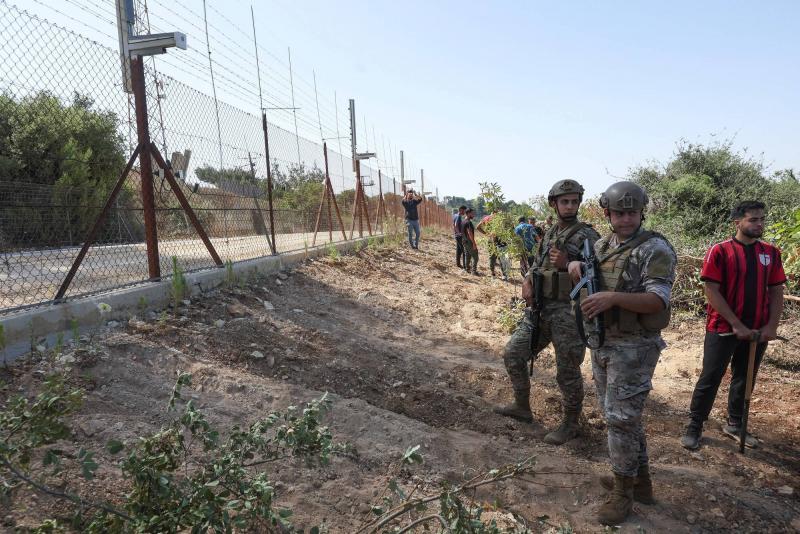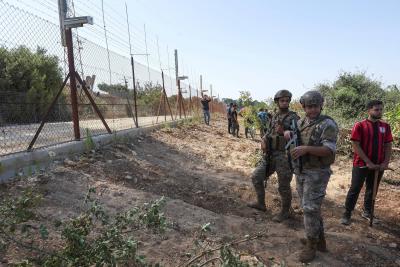Despite "Hezbollah" withdrawing its elite forces, the "Radwan" unit, more than 5 to 6 kilometers from the Lebanese border, tension has returned to both sides of the Israeli-Lebanese border. The threat of further escalation has increased following a rise in rocket fire reaching deep into both countries. Israeli officials have stated that the military has prepared plans for an invasion of Lebanese territories, and it is not unlikely that a war may be declared. However, political sources in Tel Aviv indicated that France and the United States continue their efforts to reach a ceasefire agreement with the Lebanese government.
Israeli reports noted that "Hezbollah" has repositioned part of its "Radwan" unit 5 to 8 kilometers from the Lebanese-Israeli border. The Israeli newspaper "Yedioth Ahronoth" reported on its website "Ynet" that "there is a movement of (Radwan) northward, but it is not sufficient, and the chances of success for the military and political effort to withdraw (Hezbollah) from the border are improving." Israeli Channel 12 stated that "half of the (Radwan) force at the border has already left due to military activity (by Israel), but the other half remains there, and much work is still needed."
Israeli reports also indicated that "Hezbollah" is conducting a psychological warfare campaign against Israel, and with its forces withdrawing north, which has calmed residents of the northern towns regarding their return to their homes, the group has continued to escalate rocket fire reaching as far as 30 kilometers deep into Israel, reigniting tensions. The reports noted that the Israeli military rejects this manipulation by "Hezbollah" and insists on responding strongly to the rocket fire deep in Lebanon. It is noted that Israeli bombardments targeted infrastructure and destroyed a significant number of the group's sites along the border, as well as in deeper regions of southern Lebanon. It has threatened that continued bombardment will lead to a war, suggesting that what happened in Gaza could be a model for what would occur in Lebanon.
According to political sources, the extreme Israeli right continues to call for taking advantage of the opportunity to recruit reserve forces to expand the front against "Hezbollah." However, the U.S. administration is restraining these intentions and insists on preventing the opening of another war front with Lebanon, believing that such a front could ignite a regional war threatening a global conflict. They affirm that the mediator sent by President Joe Biden, Amos Hochstein, is still making earnest efforts to reach a truce. These sources claim that Hochstein sees the withdrawal of "Radwan Forces" as a positive gesture indicating that there is room for optimism for progress towards a political agreement that includes a ceasefire and the establishment of a security buffer to prevent deterioration into war.
Nonetheless, Israelis fear that "Hezbollah" may seek an agreement that would lull Israel for a few months and then choose a time to launch a war similar to the "Hamas" attack but on a larger scale. They assert that "Hezbollah" is much stronger than "Hamas," possessing combat experience and sophisticated weapons that pose a serious threat to Israel. Therefore, a preemptive strike against it should be directed.




